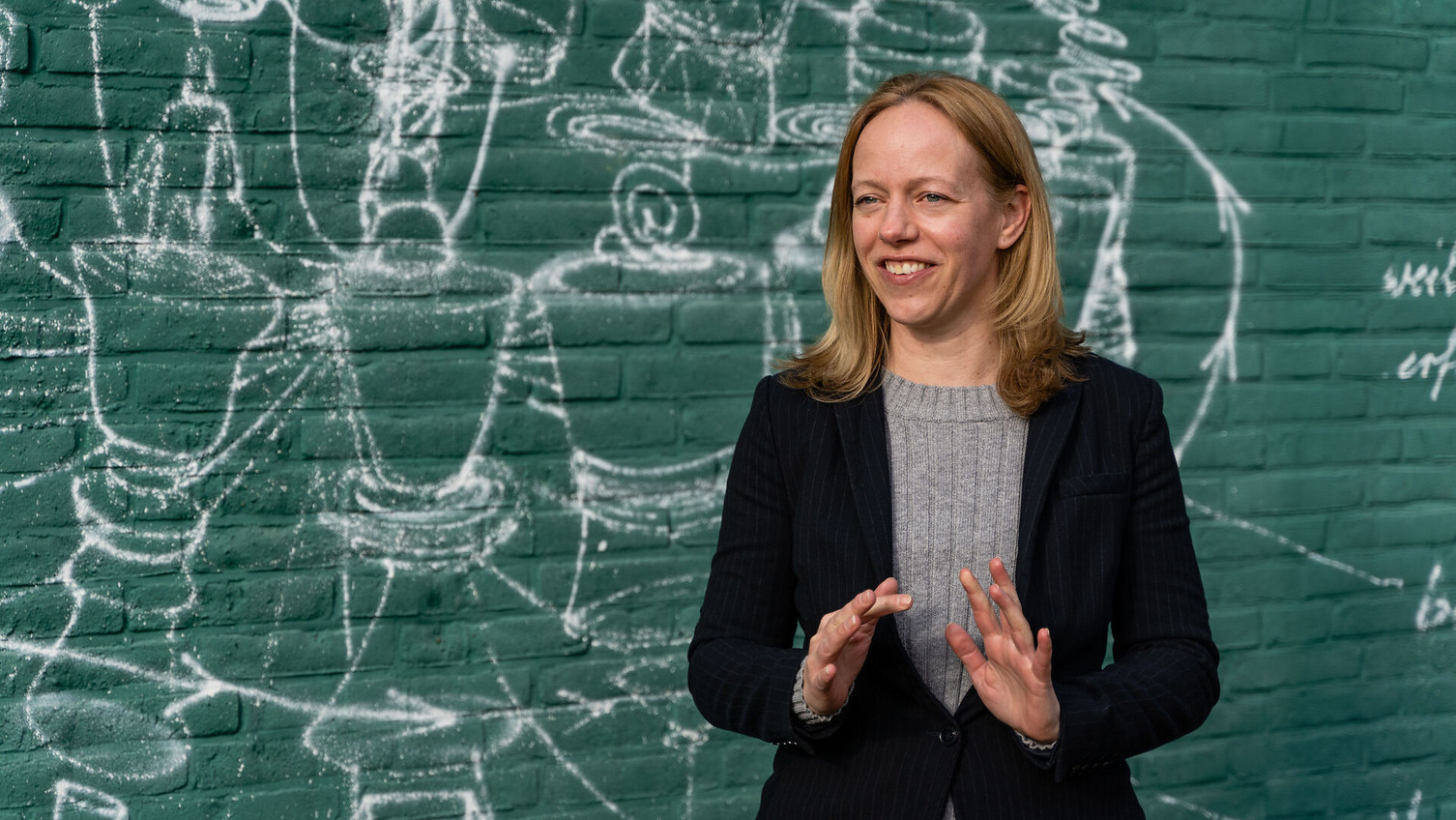Doctoral Days 27.-29.11.2024 – Everything for your doctorate
2024-11-14 The Graduate School's Doctoral Days offer special insights into doctoral studies at Leuphana. We warmly invite you to learn about the opportunities for doctoral studies at Leuphana and to find out about the admission procedure, funding options and support services at a range of events. In an interview, the head of the Graduate School, Dr Anja Soltau, explains what makes a doctorate at Leuphana special and what the Doctoral Days are all about.
Who are the Doctoral Days aimed at?
With the Doctoral Days, the Graduate School would like to give those interested in doing a doctorate the opportunity to find their feet – What does it mean to do a doctorate? Is this the right path for me? How do I go about it? In addition, anyone who has already decided to do a doctorate should receive specific guidance on the next steps. Finally, we would like to present the special ‘Doctoral Experience’ at Leuphana.
What makes doctoral studies at Leuphana different from other universities?
In 2010, Leuphana Graduate School was the first university in Germany to establish a structured doctoral programme at all faculties. All doctoral students are not only supervised by a professor, but are also assigned to one of twenty Leuphana doctoral research groups, which work along the lines of DFG research training groups. The doctoral students and supervisors thus jointly form a special space for exchange and development. The doctoral research groups are a feedback hub, think tank and academic discourse community in one.
The doctoral programme is also a unique feature of Leuphana. What does it offer doctoral students?
Doctoral students at Leuphana not only write their dissertations, but also deepen their knowledge of methods, scientific theories, practical scientific issues and research ethics in courses specially developed for them. The range of courses is supplemented by offers from international visiting fellows to facilitate access to the global scientific community for doctoral students.
Further highlights are our PhD Flagship Courses, which are developed and conducted together with international partners. Our Spring School ‘Feature your Future’ in cooperation with KU Leuven in April 2025 is a current example of this. Last but not least, we offer our new doctoral students interactive onboarding for their ‘academic journey’ twice a year. Overall, despite the wide range of options available at Leuphana, the focus is still on the individual research project of the doctoral students – and those who do particularly well can hope to receive one of the Leuphana Dissertation Awards presented annually.
The Graduate School links the Master's programmes and the doctoral programme – how does it do that in practice?
One example is the Doctoral Track. Particularly research-oriented Bachelor's graduates and Master's students can start their doctorate through the Doctoral Track programme and get involved in the exchange of doctoral students at an early stage. This gives them the unique opportunity to combine their Master's and doctoral studies, enabling them to acquire their Master's degree en route while keeping their sights set on the doctorate. Unlike at many other institutions, this opportunity is open to all disciplines and Master's programmes.
A doctorate is the highest academic degree. Are the Doctoral Days only for future professors?
No. We know that in Germany, on average, only one in five doctoral graduates remains in the academic sector. As Graduate School, it is important to us to prepare our doctoral students for this. On the one hand, we support our doctoral students so that they can achieve excellent scientific results – including with financial resources, for example, for research stays and conference participation. On the other hand, we provide a comprehensive range of advice and coaching for career planning. In addition, the Graduate School offers the certificate programme ‘Leadership in Society and Business’ – a continuing education programme specifically for future leaders in non-scientific professional fields.
All in all, it is confirmed that a doctorate is an excellent qualification for many activities, because it strengthens the transformation competence that society needs in today's world. In addition to the important aspect of providing information, the Doctoral Days are also intended to convey the ‘spirit of research’ to the various target groups – this is particularly important to us as a graduate school and a research-intensive university. With this in mind, we look forward to a lot of scientific spirit and three inspiring days all about doctoral studies!

